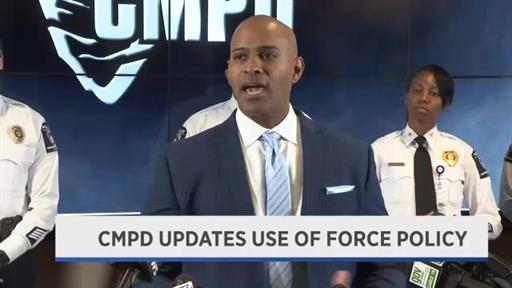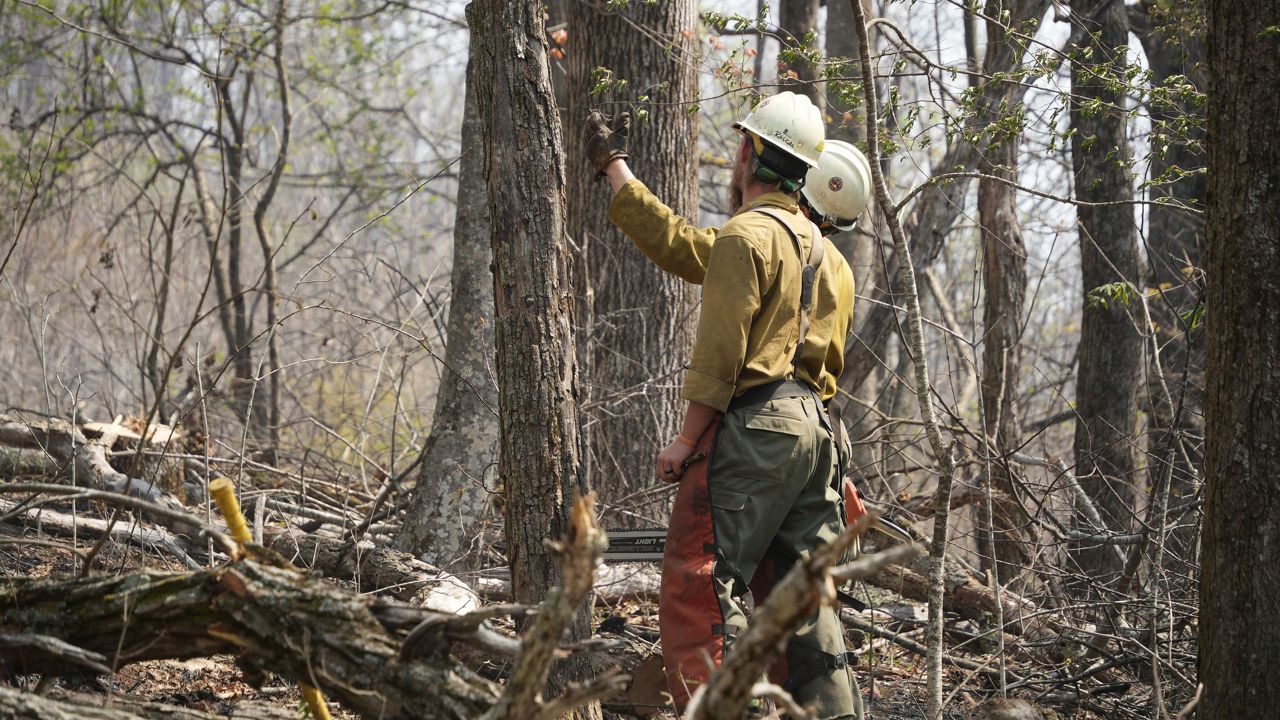CHARLOTTE, N.C. -- Following deadly shootings involving its officers, the Charlotte-Mecklenburg Police Department is updating its “use of force” policy. The department is also changing the way it refers to that policy by calling the “response to resistance.”
- The updated 14-page policy has one overarching theme the chief says recognizes the value of human life.
- Social activism groups aren't applauding the final product just yet.
- The policy revisions also include when lethal force might be necessary
CMPD officer Wende Kerl shot and killed Danquirs Franklin back in April outside of a west Charlotte Burger King. In the days after, social activists questioned whether Kerl de-escalated the incident and whether she rendered first aid after shooting Franklin.
CMPD chief Kerr Putney says updates to the department’s use of force policy are not in response to just one officer-involved shooting.
“It's offensive to all of the people who've been injured in the work here in Charlotte, to talk about one case. I won't disrespect families by doing that,” the chief said.
He did, however, acknowledge those very activists such as Robert Dawkins with Safe Coalition NC which helped craft those updates.
“This has been the first chief that ever said there was an open door for the community to actually come and sit down and bring this policy recommendation, put it directly in his hands, and see where it went from there,” Dawkins said.
“Out of about 8,000 armed encounters this year, all but three we managed to successfully deescalate,” chief Putney said.
It’s something he says is admirable.
“But it’s not perfect but for this city. It's not good enough,” he said.
The updated 14-page policy has one overarching theme the chief says recognizes the value of human life.
“It would be the first time we've really allowed for this level, this depth of perspective and insight,” he said.
One of the major standouts regarding the response to resistance is it is the first time the department has specifically defined what de-escalation means.
“It's in writing and we have to stand by it and the community can hold us accountable,” chief Putney said. “Our goal in every encounter, every armed encounter, is de-escalation."
The policy revisions also include when lethal force might be necessary and specific steps officers must take when faced with potential violence.
“We're trying to get time, distance, and cover so we can slow things down,” he said.
Social activism groups aren't applauding the final product just yet.
“The only thing that we can do is push for good policy, hold people accountable,” Dawkins said.
There's just one thing they can't effect change on.
“A lethal imminent threat, that standard has not changed at all, there is no policy that we have that is going to supersede the legal standard,” the chief said.










